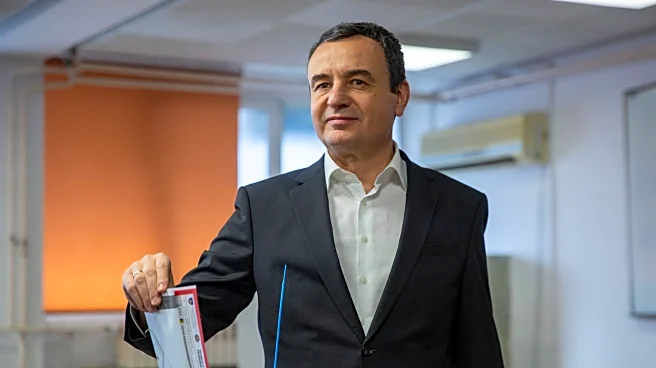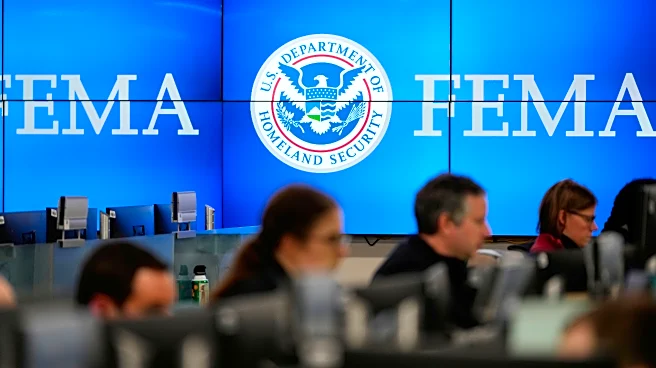What is the story about?
What's Happening?
OpenAI has released a report detailing how suspected Chinese government operatives have utilized ChatGPT to draft proposals for large-scale surveillance tools. The report highlights the use of artificial intelligence to enhance repression, providing insight into authoritarian abuses of AI technology. According to OpenAI, a user likely connected to a Chinese government entity requested assistance from ChatGPT to create a proposal for a tool that analyzes travel movements and police records of the Uyghur minority and other 'high-risk' individuals. Additionally, another user sought help in designing promotional materials for a tool that scans social media platforms for political and religious content. OpenAI has banned both users involved in these activities.
Why It's Important?
The report underscores the growing competition between the U.S. and China in the field of artificial intelligence, with both nations investing heavily in AI capabilities. The use of AI for surveillance by state actors raises significant concerns about privacy and human rights, particularly in regions where minority groups are targeted. The findings also highlight the potential for AI to refine existing surveillance techniques rather than creating new forms of cyberattacks. This development could impact U.S. national security and influence global discussions on AI governance and ethical use.
What's Next?
The report may prompt further scrutiny and regulatory measures regarding the use of AI technologies by state actors. It could lead to increased diplomatic tensions between the U.S. and China, as well as discussions on international standards for AI use. The U.S. Cyber Command is exploring AI applications for offensive operations, which may include exploiting software vulnerabilities in foreign equipment. This ongoing exploration could shape future military strategies and cybersecurity policies.
Beyond the Headlines
The ethical implications of AI use in surveillance are profound, raising questions about the balance between technological advancement and human rights. The report may influence global AI governance frameworks, emphasizing the need for transparency and accountability in AI applications. As AI becomes more integrated into state operations, the potential for misuse increases, necessitating robust ethical guidelines and international cooperation.

















